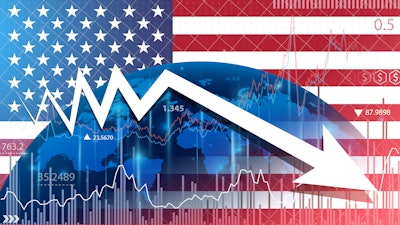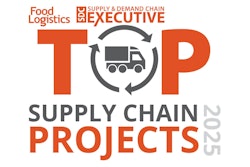
Unstable trade policies are accelerating supply chain transformations, with companies making real-time shifts to stay competitive. In fact, a new survey from Qlik reveals that 49% of companies now see Mexico as their biggest tariff-related disruption—more than those citing China (45%). To mitigate risks, 54% are stockpiling goods, moving away from lean supply models in favor of domestic sourcing and trade adjustments.
"The days of static supply chains and gut-driven decisions are over—trade policies now shift in real time," says Mike Capone, CEO of Qlik. "Companies can’t rely on historical models or instinct alone; agility and data-driven foresight must become core business capabilities. Those who dynamically adapt their strategies will lead, while those stuck reacting will inevitably fall behind."
Key takeaways:
- 64% of companies began preparing for trade shifts before the 2024 U.S. election, while 36% are now racing to adjust.
- Industries like automotive, manufacturing, and aerospace are driving change with half of companies sourcing more from domestic suppliers and 43% leveraging free trade zones to reduce tariff exposure. Meanwhile, 75% of executives are highly concerned about the impact of tariffs on their companies and daily operations.
- 49% of companies cite Mexico as their top tariff-related challenge, compared to 45% for China. In automotive, 73% of executives rank Mexico as their biggest concern—nearly double the 38% who cite China.
- 54% of businesses have increased on-hand inventory of international goods to hedge against tariffs. Stockpiling is highest in aerospace (64%) and large enterprises (57%), reflecting a shift in risk management.
- 72% of VPs and managing directors began preparing for tariffs before the 2024 election, compared to 56% of the C-suite. Meanwhile, 44% of C-suite leaders waited until after the election, while only 28% of VPs delayed action.
- 50% are increasing domestic sourcing, led by 62% in automotive and 55% in manufacturing, while 43% are leveraging free trade zones to reduce tariff exposure. Additionally, 44% are frontloading payments before tariffs take effect, securing pricing amid trade uncertainty.
- 79% of businesses have adjusted to tariffs, either by planning ahead (39%) or reacting quickly (36%). Yet fewer than 40% use AI for trade decision-making, and only 34% leverage predictive analytics. AI adoption is particularly low in retail (23%) and healthcare (21%).
- 76% of executives believe tariff uncertainty is strengthening their job security, reinforcing the growing strategic role of supply chain expertise.
















![Pros To Know 2026 [color]](https://img.sdcexec.com/mindful/acbm/workspaces/default/uploads/2025/08/prostoknow-2026-color.mduFvhpgMk.png?ar=16%3A9&auto=format%2Ccompress&bg=fff&fill-color=fff&fit=fill&h=135&q=70&w=240)

